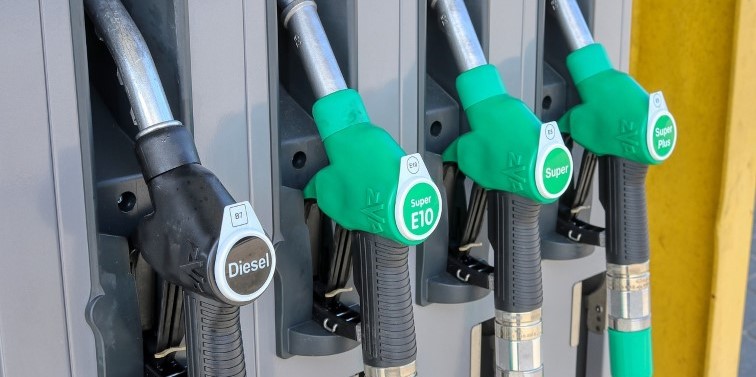Petrol or diesel: fuel economy and key differences
Which is more fuel-efficient - petrol or diesel?
A diesel engine appears to be fuel efficient as it uses less fuel and is more fuel efficient. However, not everyone talks about the cost of servicing a diesel, and it needs servicing more often and more expensively than a petrol engine. Diesel cars are generally more expensive to buy than petrol cars, but you can save money on fuel. Fuel consumption depends on whether the car is driven in city traffic or more often on the motorway. The longer the distance travelled by a diesel car, the quicker the extra cost of purchase will be recouped. The combustion of the fuel mixture in a diesel engine is more efficient. This is made possible by the higher compression ratio: around 20:1 for diesel versus 10:1 for petrol. A diesel engine consumes approximately 15-20% less fuel than a petrol engine. This not only saves money, but also time, as you can drive more miles on one tank and stop less often to refuel.

When choosing petrol or diesel, you should also consider your daily routes and driving habits. If your journeys are usually limited to the city, a petrol engine is the way to go. Behind the wheel of a petrol car, you need to gain revs confidently and change gears quickly. Diesel cars, on the other hand, are stronger (having more torque over a wider rev range) and capable of climbing steep slopes even with a very heavy load. Diesel cars are suitable for motorway driving and travelling long distances. Even when driven fast, their RPMs are lower and speeds are shifted less frequently. A petrol car accelerates faster from zero to a hundred, but a diesel car behaves better when overtaking and has a higher towing capacity. The only thing that speaks against diesel is the increased vibration and noise level, but the newer the car is, the less noticeable this difference is. When it comes to winters, it should be taken into account that a diesel engine does not like short distances - the journey should be at least long enough for the engine to warm up well.
It is generally considered that a diesel engine should be chosen on economic grounds if it is driven at least 20,000 kilometres per year.
Comfort
Due to the high combustion pressure, diesel engines create more noise and vibration, but the newer the car, the less noticeable this difference is.
Safety
The difference between diesel and petrol is that diesel evaporates more slowly and is therefore less likely to catch fire. In addition, diesel engines do not use an ignition system. It is important to note that staying in a diesel car for a long time (e.g. sleeping) is less likely to cause carbon monoxide poisoning.
Environment
Modern diesel engines are considered more environmentally friendly. Modern units are fitted with a particulate filter to minimise environmental impact. AdBlue additive is also used to reduce emissions. However, many cars' soot filters do not "like" city-only driving because they need to self-regenerate or clean out the soot build-up, and this cleaning usually happens on the highway at high engine RPMs. This is another reason why a diesel will not be the best choice for city driving only.
Lifetime of engine
In theory, the diesel engine tends to be more durable because of its robust and sturdy components, such as the cylinder block, crankshaft, cylinder piston group, and cylinder head. However, this durability is closely linked to the quality of the diesel fuel used. On the other hand, petrol engines are generally less sensitive and more resilient to lower-quality fuel.
Winter operation
Diesel engines are more difficult to start in winter and require more starting current, so the battery must be in good condition. In addition, diesel engines take a long time to warm up, so it will take 10-15 minutes of intensive driving to warm up the cabin. A petrol car is preferable if you live in an area where severe frost is common.